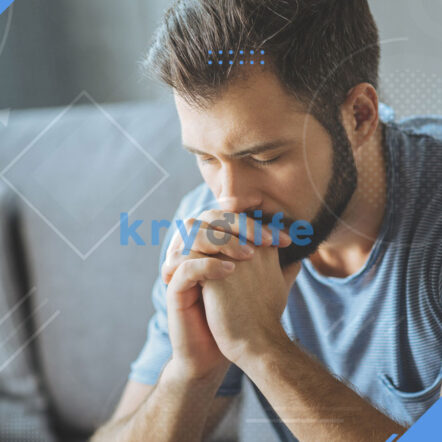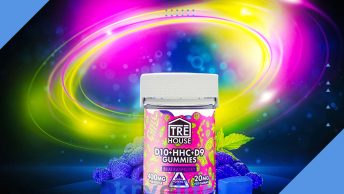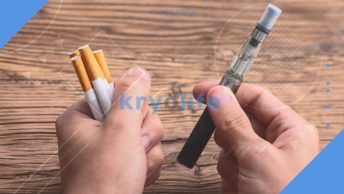Mental health issues are a global concern – men, women, teens, and even kids suffer from it.
For men, however, the struggles are often unseen or at least not talked about, as they hide in the veil of stigma.
In fact, one out of ten men suffer from depression or anxiety, and out of that number, less than 50% actually receive treatment.
But why is that the case?
Social norms around masculinity are what prevent many men today from seeking help.
There’s this stigma that when they speak out about their emotions, they’re weak.
That’s why traditional go-to treatments like counseling and medication have become unappealing for some.
As the understanding of men’s mental health increases, the movement towards alternative therapies grows – these may take the form of even simple mindfulness practices and can happen outside of a typical therapist’s office to avoid the social norms that have kept many men silent and untreated.
But how do these alternative therapies work, and are they worth it?
We’ll try to answer those questions below, so please read on.
How men benefit from alternative therapies
As mentioned earlier, there’s a stigma about opening up regarding emotional problems decreasing men’s masculinity.
The problem is that when you sit in an office to talk to a trained therapist regarding your struggles, it might feel like showing the whole world that you’re going against societal expectations of stoicism.
For those who want to sidestep this stigma, alternative therapies come in and offer great help.
Tapping into men’s tendency to prefer action and tangible experience
Men would also be glad to know that some alternative therapies are action-based in nature, which go with their natural tendencies.
Good examples are equine therapy and gardening – these activities provide a sense of tangible progress, something that you may not easily notice in a psychotherapy session.
Non-verbal avenues for emotional expression
Art, music, and wilderness therapies are also non-verbal approaches that most men would find as an approachable avenue for expressing their emotions.
Basically, what alternative therapies do is provide spaces where men can open up organically, eliminating the fear of judgments or any other preconceived notions.
It’s obvious that alternative therapies provide more control when it comes to one’s journey toward better mental health, and that idea appeals to most men.
Types of alternative therapies to consider
So, what are the different types of alternative therapies available, how does each one work, and what are their benefits?
Take a closer look at some of them below:
Mind-body practices
One of the most accessible alternative therapies for men’s mental health is mind-body practices – these typically involve simple physical activities and focus on breathing and mindfulness.
One good example is hypnosis, which taps into an altered state of consciousness where awareness and responsiveness are intensified.
For instance, with hypnosis for PTSD, you’ll have a chance to identify aspects of a terrifying event you experienced or witnessed in the past that triggers post-traumatic stress disorder’s symptoms.
What’s great about mind-body practices like hypnosis is that they don’t have to happen in clinical settings and can even be done in the comfort of your home, so it doesn’t really feel like you’re asking for help.
Yoga, where physical poses meet meditation, is another good example.
Tai chi, the mind-body exercise that originated in China, is also a good choice, especially if you prefer to engage in slow-flowing movements while deep breathing.
Outdoor nature-based therapies
If you’re looking for a peaceful yet invigorating therapy, you can’t go wrong with the outdoor nature-based ones.
Backpacking and camping are perfect for adventurous men.
For those who prefer more casual outdoor activities, fishing, hiking, or even just gardening is also a good idea.
What’s great about outdoor nature-based therapies is that they’re usually done in groups, which means they involve group discussions while connecting men to nature’s restorative powers.
In a literature review published in 2022, 92% of studies demonstrated improvements in both mental and physical health among individuals engaged with nature.
Equine therapy
If you’re into sports and at the same time love animals, specifically horses, this is for you.
Here, you’ll care for a horse to build confidence and empathy.
Peer support groups
If you’re struggling with your mental health, know that you’re not alone – many men suffer from it.
That said, if you think you’ll be fine in a judgment-free space where you can open up about your problems alongside men who’ve lived or are living through the same experiences as yours, consider peer support groups.
Art and music therapy
Do you like to write songs, play instruments, or paint?
As mentioned earlier, art and music are creative outlets where you can express your emotions without having to speak at all.
If you’ve ever heard someone say that they felt better after sculpting or playing the guitar or drums, that’s art and music therapy for you.
Also, one 2019 research suggests that dancing may help adults suffering from depression, so that’s also something you can try if you’re up for it.
These are just some of the many alternative therapies for mental health you can find today.
Try the ones on the list above to see if there’s something that fits your needs, and feel free to explore other options if necessary.
Conclusion
The traditional approach to treating mental health problems has helped many people.
But one can’t deny the fact that the support landscape is expanding, and it’s especially true for men who like to have more control over their journey to better mental health.
Enter alternative therapies into the scene.
Aside from empowering men, they present a way around the stigma surrounding standard treatment procedures – they meet men where they are.
Of course, there’s no one-size-fits-all alternative solution, so men should have open but discerning minds when figuring out which alternative therapy is right for them.
However, men shouldn’t discount the possibility of combining standard and alternative support programs; at the end of the day, both approaches’ main goal is to wipe out mental health struggles.







